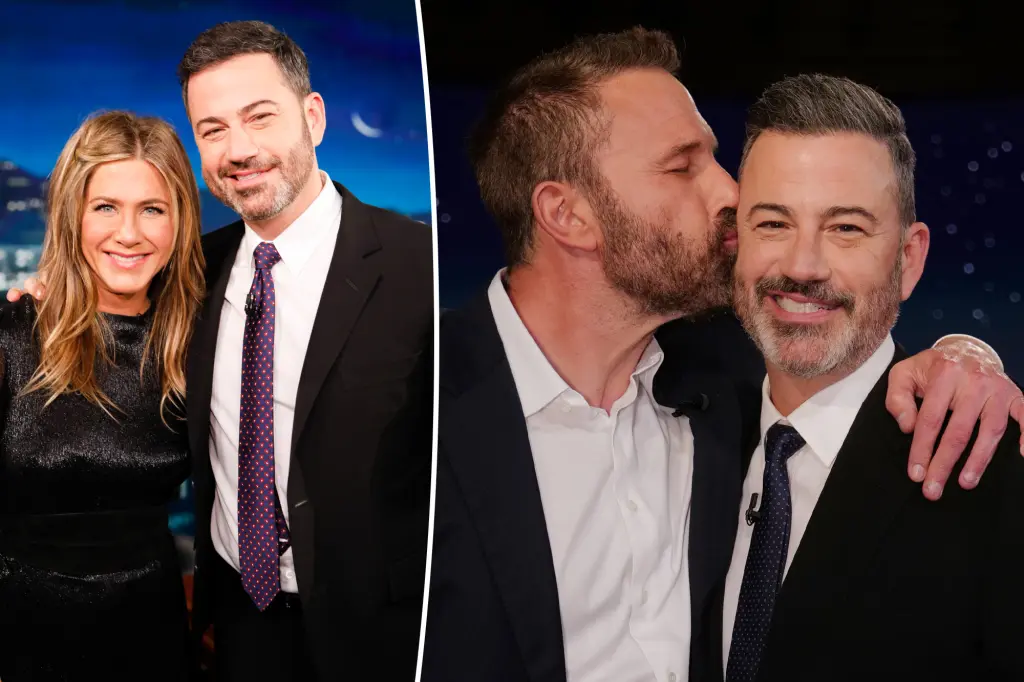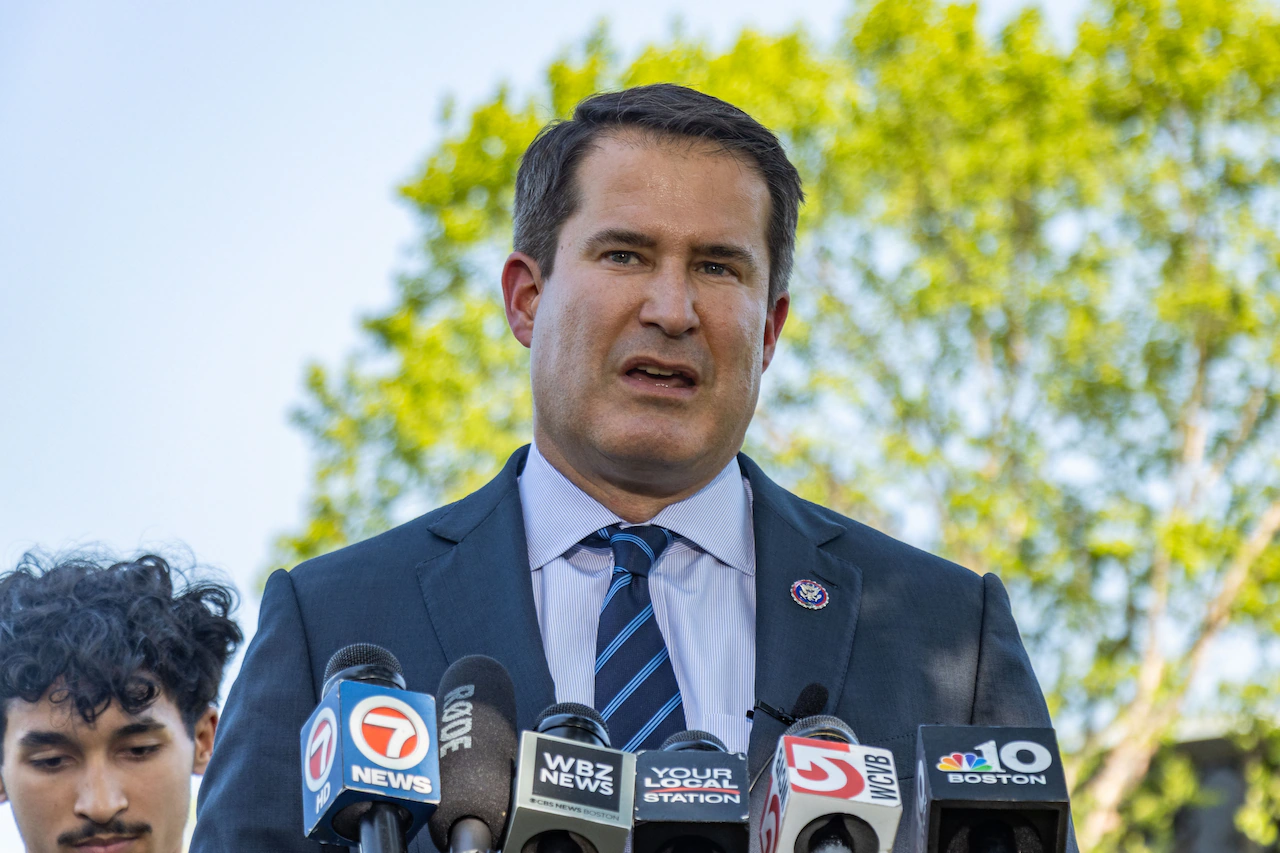
The night is young in Flatiron. Finance bros with gray vests and backpacks and women in jeans and sweaters are still walking home from work. In the middle of 25th St, a man opens a red stanchion and ushers us toward a guard who stamps invisible ink on our wrists. We’re each given a black plastic bag with a tear tab to lock our phones in for the night. We enter a silvery elevator, which takes us to the 38th floor. I ask if anyone in the crowded elevator is a proud member of the Yang Gang; at first everyone is silent, until a little cheer erupts.
The party is called “OFFLINE,” and the concept is: no phones, no doomscrolling. The flyer promised “nonstop energy, next-level vibes, and a crowd that’s all about real connection.” The monthly event series was launched earlier this year by Andrew Yang, the former presidential and New York mayoral candidate. Perhaps bruised by his losses, he’s turned away from politics—except for the occasional Substack missive explaining why he hasn’t endorsed Zohran Mamdani—and toward party promoting. I discovered the event through TikToks where he’d giddily wave around a Polaroid camera and brag about how he “got 700 people off their phones for the night,” then show a montage of snaps—bodies and limbs twirling in the dark. There was a funny sort of irony that he was using pictures of partygoers at his “offline rave” as fodder for slickly edited TikToks to market the event.
The main room pulses with hard techno and 2018-era Rap Caviar hits like A$AP Rocky’s “Praise The Lord” courtesy of Conrad Taylor, the night’s headliner. Before he pivoted to DJing, he was Yang’s Deputy Campaign Manager in 2021; before that, he was a city councilman for Binghamton. There’s a row of disco balls and a fake tree littered with sticky notes responding to a prompt about your favorite movies and books. What distinguishes this event from any regular club night is a giant TV on one end flickering between pearls of wisdom: Look Up. End the Brain Rot. OK, phone boy.
There’s also a booth in the corner with a large “NOBLE” logo. As I learn from various staff members throughout the night, Yang’s OFFLINE parties have been one long protracted brand activation, an extended marketing rollout for his newest venture. It’s a startup (freshly funded with $10.3 million from a seed round last week) called Noble that incentivizes you to use your phone less by paying you for unused data. Essentially, he’s reselling service from within the T-Mobile system—you pay $50 a month for Noble and if you use less than 20 GB outside of WiFi networks, you get something like a $1 for every unused GB. The idea seems to be that we’re already overpaying for service, and this is a more precise way to pay, with the additional effect of making us hyper-optimize our scrolling (like during commutes) to earn money back. How this business could possibly be profitable for all parties wasn’t entirely clear at the event, but the Yang Gangers were buzzing about it.
Upstairs is the roof, a nondescript square looking onto Manhattan’s midtown lights. It’s so early that barely anyone’s here; a crowd surrounds a magician performing card tricks where he asks someone for their screen time and then reveals a card with the same number. My friend and I go to the bar; he shells out $30 for a Moscow Mule, I pay $15 for a slim cylinder of beer. There’s another even larger screen with stop-the-scroll slogans that engulfs an entire wall.
I enter into a circle of chattering men; one, Julian, animatedly explains how Noble works, adding that he just interviewed Yang. I try to ask him three times what outlet he writes for but he seems to intentionally dodge it. The other two are genial ex-San Franciscans; one does backend for Uber Eats and the other works in AI structural engineering at an S&P 500 company.
The roof starts to fill up, packed with polos and slacks and inoffensively patterned button-ups, every foot encased in an On, New Balance, or boat shoe. There are cloud engineers, medical researchers, former Yang campaigners, corporate strategists, the spouse of a guy who founded a healthy cookie startup called Mmmly that Yang invested in before the company was sold at a loss. Everyone lives in Williamsburg or Murray Hill or Long Island City. Nobody seems to know what Nowadays or Pitchfork is, a refreshing change of pace.
A guy in all black named Teddy hands me his Spectrum Multi-Tenant Sales Rep business card. A suit-wearing real estate agent named Kunal whips out his phone to show me a New York Post article he was quoted in recently. Someone who mostly goes to Mission and Den Social Lounge says the vibe here is very “genuine and open” in comparison. Another guy tells me the opposite, that this is a “futile attempt to decrease the brainrot” and everyone knows it’s kind of pointless. It’s true that we need a break from the digital bile—I write about this exhausting and electrifying slop every week!—but a few hours of networking on a ritzy roof with overpriced drinks doesn’t feel like a thoughtful solution.
I bump into a woman named Julia, who’s from a “farm in Missouri” and “came here to find my husband”—also a marketer who had a hand in Meta’s recent AI glasses launch. She has a neat cowgirl top and a horseshoe tattoo. She tells me about how she saw Yang downstairs, asked him what he likes to drink, and he said ginger ale. “Buzzkill! We don’t want a president that drinks ginger ale,” she said. “I was like, tequila shots! Redheaded sluts!” She asks if I want to get a drink and I tell her I’m bound by journalistic duty to speak with other people at the event. That turns out to be a bad choice; I end up stranded with a guy who starts expounding on his breakup from two years ago and black-body radiation. His friend, who used to work on Yang’s Venture For America nonprofit, absents himself to try to secure facetime with the head honcho. I catch a glimpse of Yang when he leaves later in the party, rapidly shaking hands and bowing out.
I never ended up placing my phone in the bag, and over the course of the night, I get the sense that nobody else did either. Everyone’s snapping photos, scrolling social media. It’s almost like… the gigantic screens with text urging you to “Touch Grass” were made to be Instagram Story fodder.
I whiz around the floor, temp-checking the vibes:
Mieraan, a man in a McLovin t-shirt with a McLovin ID card, who interns at the United Nations: “I’m Gen Z, so the only thing I can say is my mother would be proud knowing I’m off my phone.”
Kate, who used to work on Yang’s Forward Party and now fundraises with the nonpartisan “viewpoint diversity” organization Heterodox Academy: “It’s incredible,” she says of the mission to get people to unplug. “You just have to look at the studies to know that it’s useful.”
Antonio: “Everyone’s been very intelligent tonight.”
Cosa, a man with a slightly off vibe: “Look at all the women,” he says stoically.
Random British guy: “This is better than every party in London!”
Yang’s events are the latest in a wave of startups, parties, and projects aiming to solve or subvert the ills of the internet, akin to things like Perfectly Imperfect and Silknode that go against the algorithm with curated recs, or the community-minded Bushwick Burner Phone, an arty zine without any web presence. But at least those entities are populated by people who are curious about art and culture—these OFFLINE events have no such pretense. The culture is: existing. Existing and fetishizing the act of being offline. The investment in cultivating a space doesn’t go anywhere beyond Post-it note prompts and dopamine detox aphorisms. “Being offline” is an empty signifier, a performative marketing ploy that’s everywhere now—in the UK, a group called The Offline Club tried to set a “world record” by having 1,000 people watch the sunset at Primrose Hill without being on phones: “No photos, no filming – just being,” the promo says.
It goes hand-in-hand with the fad for “soft clubbing,” or events in coffee shops and retail spaces that posture as anarchic raves but are really just brand experiences. I’m thinking about stuff like the Shrek Rave, a series of nationwide EDM “parties” coasting on zoomer nostalgia and the meaningless aphorism “COOL IS DEAD!” that feel more like corporate high school prom. It’s nightlife cosplay, targeted for people attracted to the aura of clubbing who don’t have any interest in genuine scenes. Hopefully someone got laid, but most people probably just left with one or two more IG contacts.
This all speaks to a deeper cultural rot—a lack of vision among people who have become accustomed to a life of doing nothing besides going to the gym, reading a trendy book, listening to a podcast. We’re at the point where “being offline” can be a personality trait, as if that imbues you with depth. And Yang’s phone idea preys on our friedness while not radically reshaping anything. He believes phones are crucial to modern existence, he just wants to launch a VC-backed business that helps you save some bucks while making himself much more.
At one point, a man pulls me into a secret room. There’s a glass enclosure with a small plot of astroturf. The man instructs me to smush the grass while he snaps photos. I’m then given a slip of paper with a QR code, which leads to a digital gallery of party attendees touching grass. I leave the room and look up at the TV screen gleaming on the wall: Fully Present.
As inane and sterile as the marketing was, the actual event wasn’t awful. It was basically just like hanging on someone’s roof but with a privileged view of the city. One of Yang’s former top campaign officials, who now helps run Noble, told me that they’re planning to expand OFFLINE even more. There might soon be OFFLINE-themed run clubs, OFFLINE nature walks and basketball tournaments, and parties across the country. Imagine the fun: we’ll all be bovine brothers touching grass in unison, fully present, looking upward and into each other’s thoughtful, empathetic eyes. No phones in sight except for the one taking the ad.
What I’m listening to:



